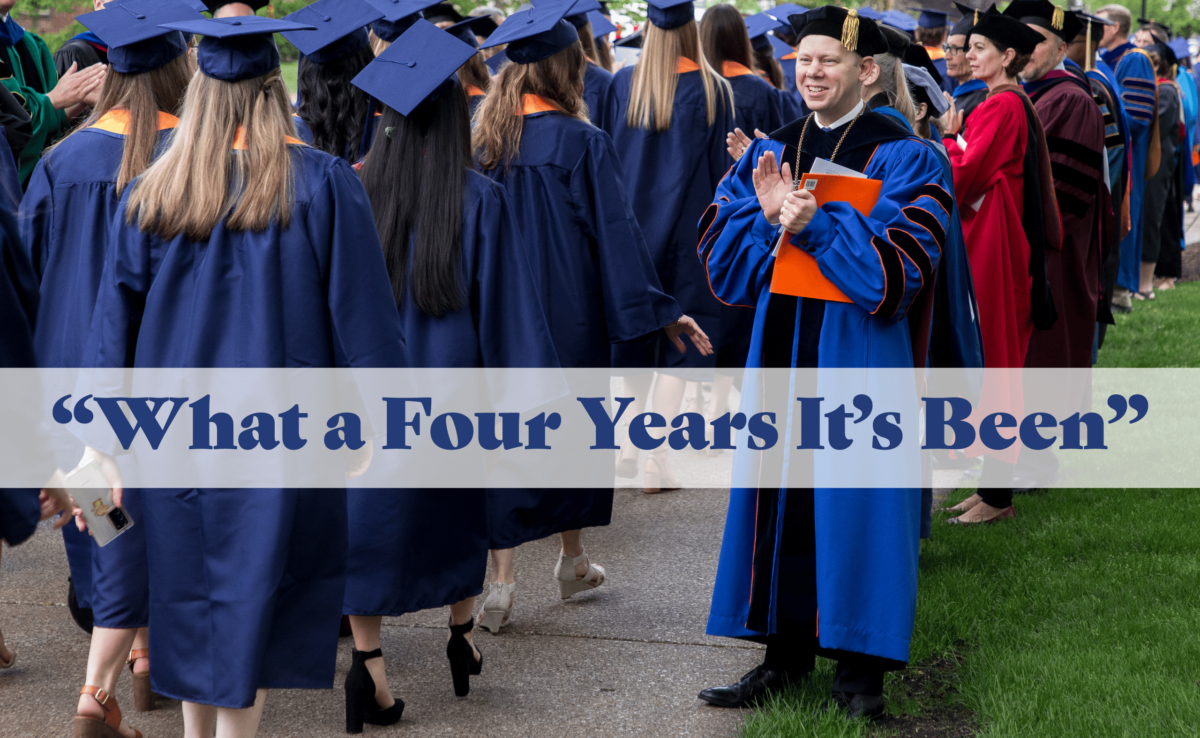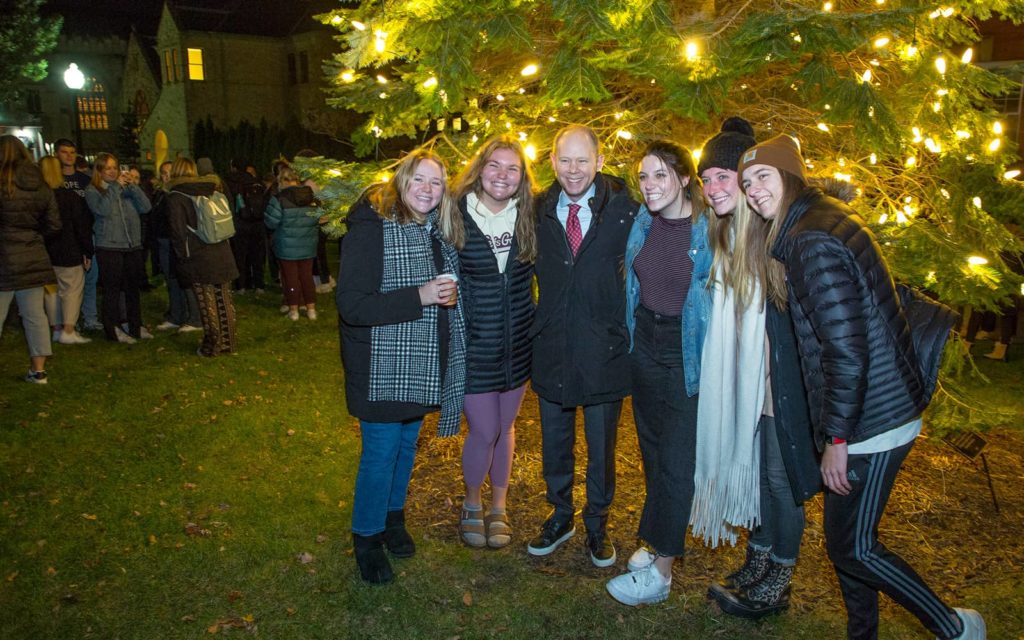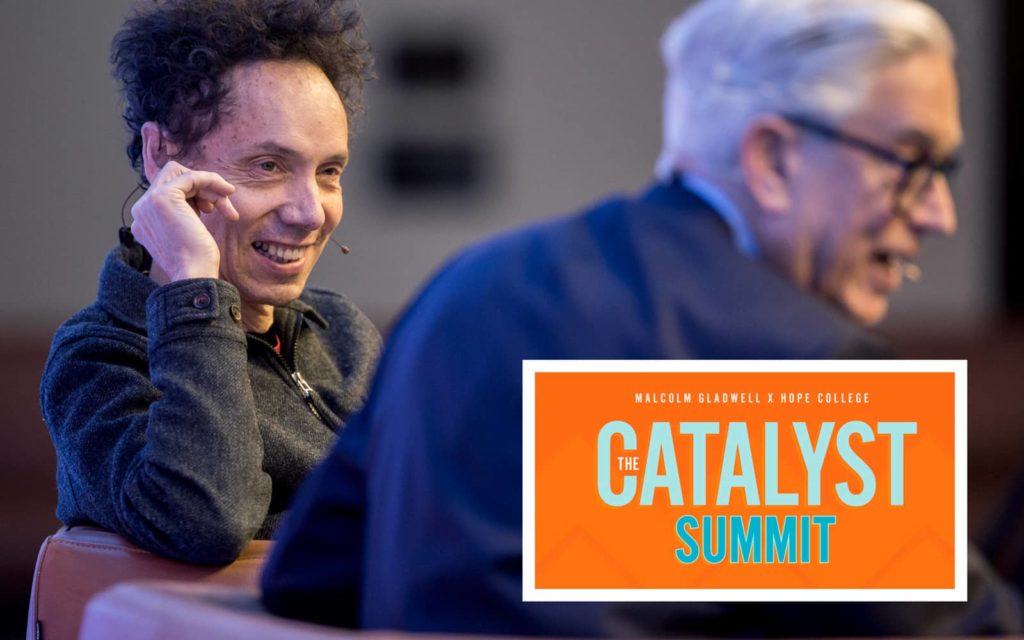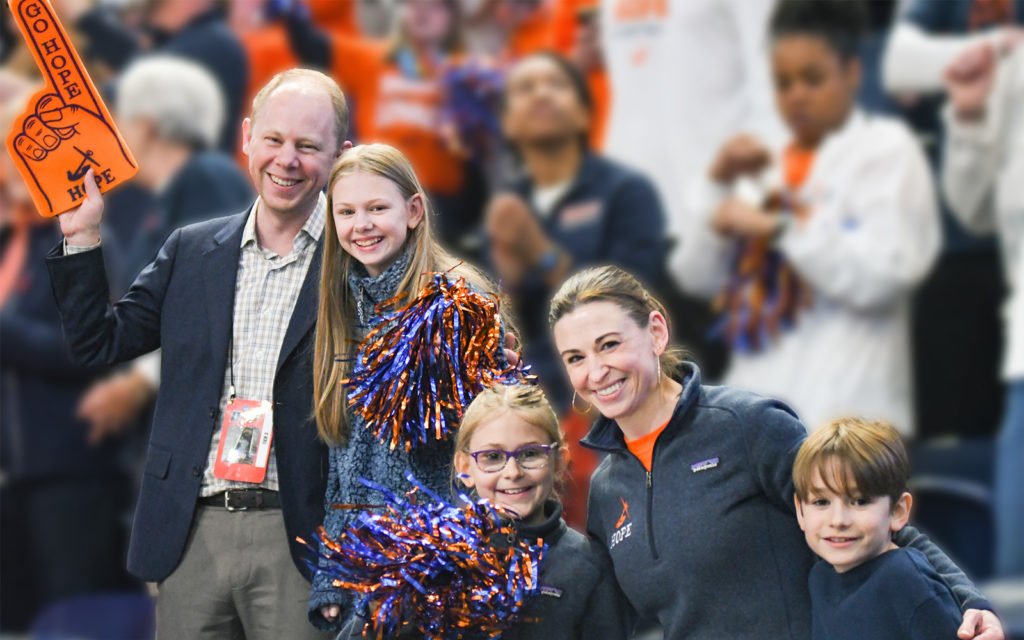“What a Four Years It’s Been”
President Matthew A. Scogin ’02 reflects on his eventful first years in office and priorities for those to come.
As he made the introductory remarks during the Baccalaureate service in Dimnent Memorial Chapel on Sunday, May 7, President Matthew A. Scogin ’02 admitted to becoming a bit choked up.
He explained that the day’s celebration of the graduating Class of 2023 was bittersweet. He and the members of the class had arrived at the college together in the early fall of 2019, and together learned the ropes and grew in community across the four years since.
“I’ll never get to say again that this class started when I started and went through these first four years with me,” he said. “And what a four years it’s been.”
What a four years, indeed. The span has been marked by some of the most challenging times in recent history, including the COVID-19 pandemic; an increasingly heated national political and cultural climate; and — affecting higher education specifically — a declining number of college-age students in the U.S. that has already prompted a number of colleges to close with more anticipated to follow.
The litany could understandably cause pessimism, but that’s not how Scogin leads or the kind of place that Hope is.
“It’s been beautiful to be back as president these last four years and see how the things that impacted me so much as a student are precisely the things that are still impacting so many students’ lives today.”
“It’s right there in our name,” he said. “Who better to run toward big, challenging problems instead of away from them than a place called ‘Hope’ — we have true, biblical hope, because of the God we believe in.”
Scogin took the helm with an unusual professional pedigree. His career hadn’t been in higher education, but in business and government. Immediately prior to coming to the college he was chief administrative officer at the global financial advisory firm of Perella Weinberg Partners in New York City; he had previously held senior positions with both the New York Stock Exchange and the U.S. Treasury Department.
Although his experiences provided the opportunity to lead complex organizations under dynamic circumstances, he wasn’t seeking to become a college president — but his alma mater wasn’t just any college. “One of the things I told the search committee was that I didn’t have an interest in being a college president. What I was interested in was being Hope’s president,” Scogin recalled.
“The high-touch academic experience and the vibrant faith environment here changed my life during my years as a student,” he said. “And for me this was really about a chance to come back and serve Hope College with the skills that I have developed through the career opportunities that my Hope education made possible in the first place.”
In addition to being well-acquainted with the college as an alumnus, Scogin had known Hope as a member of the Board of Trustees immediately before assuming the presidential mantle. Hope was thus not new to him, but even college presidents have freshman years. “The first six months of this job, you’re totally drinking out of a fire hose, trying to figure out who everybody is and where things are happening,” he said.
By the early spring of his first year, Scogin — probably akin to most of Hope’s first-year students — felt like life had settled into something of a rhythm. “And then COVID hit and the whole world turned upside down,” he said.
For Hope, the axial adjustment meant shifting to completely remote operation for the last six weeks of the spring 2020 semester, including providing instruction to students literally around the world with only spring break to prepare, and then determining how to implement a hybrid model during the coming year. There’s an adage to the effect that adversity doesn’t actually build character but instead reveals it, and accordingly Scogin believes that the way that the Hope family — faculty, staff and students alike — handled the crisis speaks volumes about who Hope people are.
“I would not want to relive it. But I just am so proud of the way that Hope came together,” he said. “I think it was a defining moment for Hope, and I’m really proud of how we navigated those early months of COVID.”
Some of the adjustments have become lasting boons. As one example, drawing on faculty expertise, Hope developed a method of testing wastewater for the presence of the virus that not only provided data for college operations but received funding through the state and became a service to other communities. As another, livestreaming increased of necessity but has continued at an enhanced pace.
Much of the livestreamed content remains available to everyone on the college’s YouTube channel, including the self-effacing, sometimes-tongue-in-cheek and frequently heartfelt social media videos that have become something of a hallmark of Scogin’s presidency since he started creating them during the pandemic.
“They began during lockdown, when the students were all dispersed, and all of us were home, and nobody was coming in to work anymore,” he said. “It felt like such a scary time, such a heavy time in our world, and I felt like we should do something to bring some hope and levity to this. So my family and I, we just started recording these silly little videos on my phone. We would do these silly things and often there would be a serious message along with it. They’ve taken on a life of their own since then.”

Poised on the eve of his fifth year at the college, Scogin notes that he is excited by the college’s trajectory. Hope is not only weathering the challenges of the age, but thriving.
The national and global challenges of the past four years could understandably cause pessimism, but that’s not how President Matthew A. Scogin ’02 leads or the kind of place that Hope is. And Hope is not only weathering them, but thriving.
Among other measures, faculty, staff, students and programs continue to receive national recognition and produce significant scholarship [some of which is highlighted throughout this issue]. Student interest is as strong as it’s ever been, with Hope receiving a record number of applications the past two years in a row.
Especially, though, he’s encouraged by the response to Hope Forward, which the college launched in the fall of 2021 to enhance access to Hope for all qualified students who would desire a Hope education but lack the financial resources to pay for it. Ultimately, the college seeks to fully fund tuition for all students, who would pay only for room and board. Through the model, students commit to contributing to the college after graduation rather than paying for their tuition in advance. By eliminating the need for student loans, the college hopes to enable students to use their education to pursue impact without the burden of debt, but Hope is also seeking to change the nature of its relationship with students through the initiative.
“Hope Forward is motivated by the message of the Gospel,” Scogin said. “One way to summarize Jesus’ message of salvation is, ‘You’re covered. Now, go and live differently.’ The message of Hope Forward is ‘Your education is covered. Now, go and live differently.’”
Achieving the goal for the entire student body will require Hope to add about $1 billion to the endowment and will take an estimated 10-15 years. In the meantime, Hope has piloted Hope Forward with two cohorts of students, 58 total, during the past two school years, with a third group of 25 enrolling this fall. So far, Scogin said, the results are promising.
“The vision is to move from a transactional relationship to a covenantal relationship,” he said. “And I think we’ve seen that develop in the Hope Forward cohorts in a profound way, where the students feel real ownership of their education and in the institution because they’ve made this lifetime commitment not just to give, but to be involved, to be invested.”
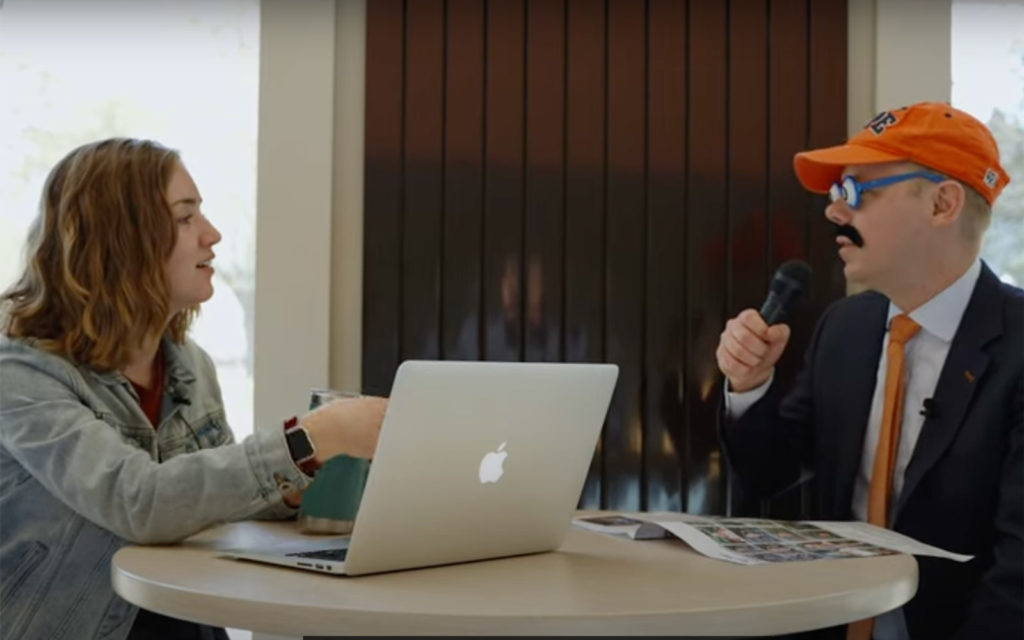
“We as an institution are making a commitment to our students: ‘We’re going to give you a world-class education. We’re going to help launch you into the world. And we’re going to stay committed to helping you at every turn in your life if there’s ever anything we can do for you,’” Scogin said. “And likewise, the students have made a commitment to us. They’re going to take their education seriously while they’re here, and then they’re going to give and be invested in the institution after they graduate.”
“When we first started talking about community, I would often cite C.S. Lewis, who talked about Oxford as a society for the pursuit of learning,” he said. “And I love that. I love that vernacular because he’s not calling Oxford a business, he’s not calling it a non-profit, he’s not even calling it a school. He is calling it a society for the pursuit of learning, and that’s what I want to be said of Hope — that we’re a true learning community.”
Hope Forward grew out of Scogin’s commitment, which he shared during his inaugural address in September of 2019, to remedy what he describes as the broken and unsustainable business model of higher education nationwide: continual increases in tuition that increasingly put a life-changing college education beyond the reach. He has been pleased to see the initiative spark conversation nationally. The launch year included extensive media coverage in conjunction with the announcement and appearances on programs such as the South by Southwest (SXSW) EDU Conference & Festival in Austin, Texas.
The growing interest led this past March to the first-ever Catalyst Summit, hosted by Hope with best-selling author Malcolm Gladwell. In addition to Gladwell and members of the faculty and staff, speakers included visiting innovators and thought leaders such as Douglas Conant, former Campbell Soup Company president-CEO and former Hope Trustee; Dr. Michael Crow, president of Arizona State University; Pete Kadens, philanthropist and founder of HOPE Chicago; Dave Levin, co-founder of KIPP Public Schools; and Anne Snyder, editor-in-chief of Comment magazine, the Christian based publication devoted to strengthening and improving societal institutions.
“The vision is catching on,” Scogin said. “We knew, in order to achieve something this big, it would be essential to bring in some supporters who aren’t naturally a part of Hope’s constituency, and that’s happening in a pretty exciting way.”
Gladwell became interested in Hope Forward and the college after learning about the initiative from another best-selling author, Michigan-based Mitch Albom, who had himself become interested after covering the initiative’s launch.
Along with participating in the Catalyst Summit, Gladwell used his time on campus to interview Hope Forward students and others for an episode of his podcast Revisionist History, which was released in June. The program, available for listening with no charge, praises the bold, transformational approach.
“To see him, as somebody who had no direct connection to Hope, get so excited about the vision was very powerful,” Scogin said. “I think he helped us see the reality that maybe Hope Forward is even bigger than we thought it was. He kept calling us revolutionists.”
“And one of the things that still moves me is that he is excited about Hope Forward not just as a creative idea, but for taking our Christian mission and applying it to solve a real-world societal problem,” Scogin said. “What I’ve learned through that and our experience with the initial cohorts of students is that Hope Forward works, and Hope Forward will inspire people not simply alongside or certainly not in spite of our Christian mission, but because of it.”
The way that Hope pursues that mission, Scogin notes, is central not only in motivating Hope Forward but in the distinctive — and desperately needed — way that Hope provides a liberal arts education.
“I want everybody to feel like they can come here and feel safe expressing their own convictions and also come with curiosity to listen to other convictions that might be different from their own,” he said. “The world can’t figure out how to have healthy disagreement right now, and, as is becoming increasingly rare in higher education, we strive to teach students how to think, not what to think.”
“And we can do that with confidence because of our Christian mission, which gives us a common understanding of human dignity,” Scogin said. “We know that we’re all made by God, made in His image to reflect His character and His light to the world. And therefore, we can put complex questions on the table and wrestle with complex topics, knowing that in our pursuit of truth we’re not always going to agree.”
“And my sense is that students want this,” he said. “My sense is that students want to talk about things like race and sexuality and gender and climate change.”
“I want everybody to feel like they can come here and feel safe expressing their own convictions and also come with curiosity to listen to other convictions that might be different from their own… We strive to teach students how to think, not what to think… We can do that with confidence because of our Christian mission, which gives us a common understanding of human dignity.”
Scogin was initially appointed for five years, through the spring of 2024, but given his love of Hope he has stayed committed to serving longer. In May, the Board of Trustees invited him to continue.
“I hope I get to do this job for a long time, so I was very honored when the board asked me to commit to another five years,” he said. “I went home and talked to Sarah [spouse Sarah Dieter ’02 Scogin] and it was a pretty quick and easy conversation. We said, ‘You bet we will!’”
“I feel as called to be here as I did in 2019, and I’m full of joy every morning walking into my office,” Scogin said. “It’s been beautiful to be back as president these last four years and see how the things that impacted me so much as a student are precisely the things that are still impacting so many students’ lives today.”

